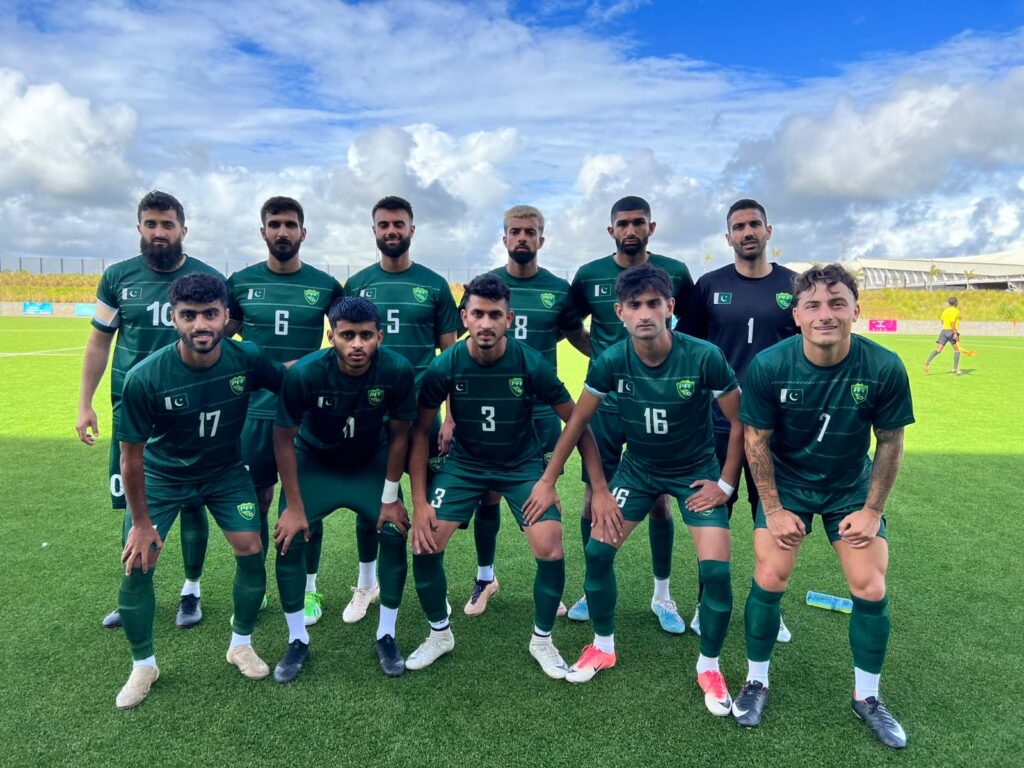
The Indian men’s national football team are set to kickstart their SAFF 2023 journey against Pakistan, their arch-rivals, full of confidence from their Hero Intercontinental Cup win which lifted them to a FIFA ranking of 98. In contrast, Pakistan suffered defeats in the 4-Nation Cup against the hosts Mauritius, Djibouti, and Kenya, raising concerns about their form and confidence. But the interesting point of discussion about the Pakistan team are their nine overseas-born players who play European club football and offer a potential advantage if effectively utilised. However, there are challenges associated with limited preparation time and coordination issues among the players, as the results in Mauritius suggested.
Turning our attention to the overseas players in the Pakistan squad, we need to travel back to 2003 when Zeshan Rehman, the current Portsmouth U18 Manager, joined Fulham. Born in Birmingham, Rehman went on to play for various English clubs including Brighton and Hove Albion, QPR, Blackpool, and Bradford City, while proudly representing the Pakistan national team.

Let’s take a look at the overseas-born players representing the Pakistan national football team in the upcoming SAFF 2023 Championship:
Otis Mohammed Khan, the 28-year-old attacking midfielder currently playing for Grimsby Town, is perhaps the most exciting prospect to watch for in the Pakistani squad. He began his football journey in the youth academy of Manchester United and later turned professional with Sheffield United. Khan has also played for English clubs like Barnsley, Yeovil Town, Mansfield Town, Newport County, Tranmere Rovers, Walsall, and Leyton Orient. While having brief loan spells at non-league clubs like Buxton, Matlock Town, and Barrow, he received his first call-up to the Pakistan team in 2015. He is yet to make his competitive international debut as the 4-nation cup in Mauritius was a friendly tournament.

Easah Zaheer Suliman (25), is their centre-back, who currently plays on loan for Vilafranquense in the Portuguese second division. He emerged from the Aston Villa Academy and has previously represented England at various youth levels. Notably, Suliman holds the distinction of being the first player of Asian heritage to captain an England football side in the Under-16, Under-17, and Under-19 categories. He has also gained experience on loan at Cheltenham Town and Grimsby Town in the English Football League, as well as at FC Emmen in the Eredivisie.

Rahis Nabi is a 24-year-old midfielder currently playing for the English Non-League side Redditch Utd. Nabi began his football journey in the youth system of West Bromwich Albion and had a notable scoring appearance for Sunderland’s youth team on April 8, 2017.
Abdul Arshad, born in February 2003, is a winger currently playing Danish 1st Division with HB Køge. Abdul had a standout year in 2022, winning the U19 League with BB.93 and finishing as the team’s leading goal-scorer with 20 goals.
Harun Hamid, another player born in 2003, the midfielder started his career at Queens Park Rangers and is currently playing non-League football at Kingstonian FC on loan.
The other names in this list are Abdullah Iqbal, the 22-year-old defender, who plays Danish 2nd division; Adnan Yaqoob Mohammed, the winger with experience in multiple Danish clubs in the first tier; Hassan Bashir, the 32-year-old forward who is also from Scandinavia, with experience of playing in the Danish League since 2006, and Yousuff Butt, the veteran goalkeeper of 33, again with huge experience in Danish football.
However, the effectiveness of these on-paper ‘strengths’ in producing results has been questionable, as evident from Pakistan’s recent performance. Despite discussions about allowing OCI Card holders to represent the Indian national team, as mentioned by Yan Dhanda on his social-media handles or expressed by Michael Chopra during his ISL stint, European experience alone may not be sufficient. It remains uncertain if the AIFF will permit OCI players to wear the blue jersey in the near future, but Igor Stimac’s recent statistics as coach suggest that India is heading in the right direction. Pakistan’s case highlights the importance of not just having talented players, but also effectively utilising their potential.




